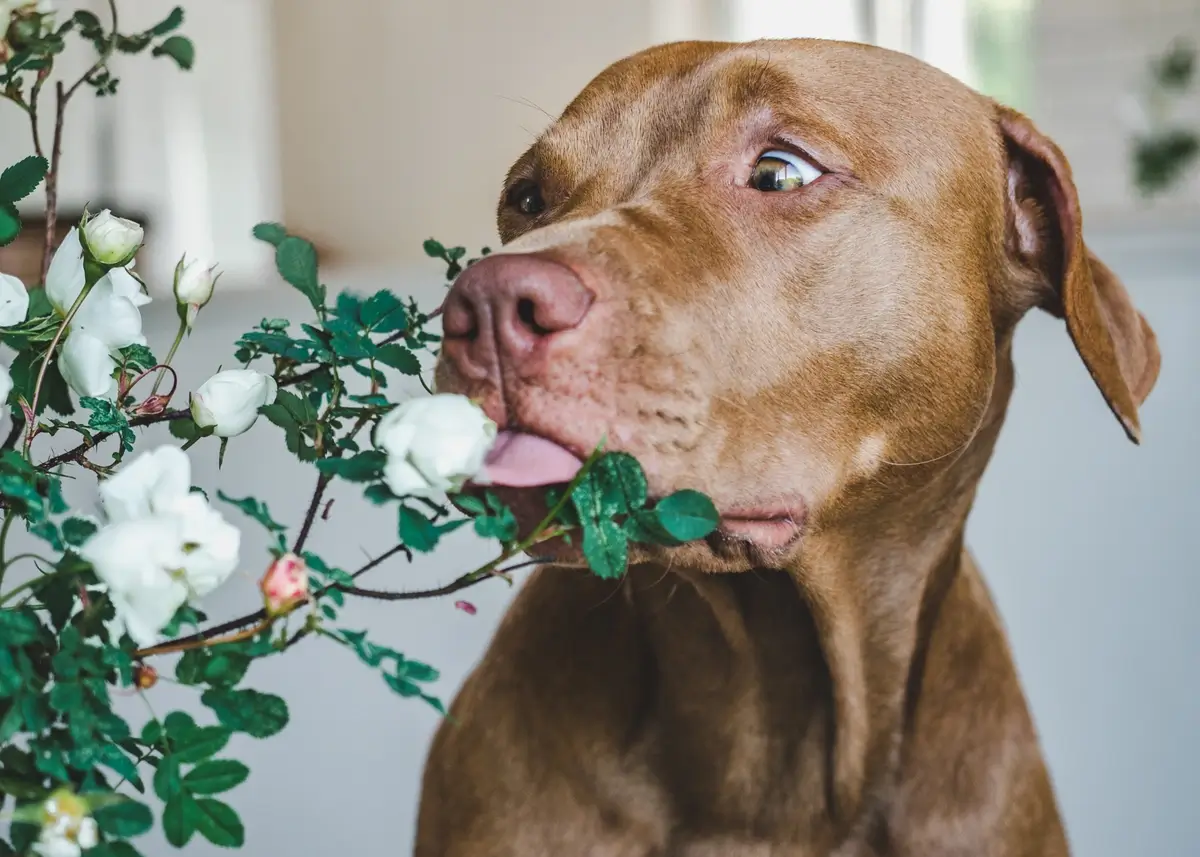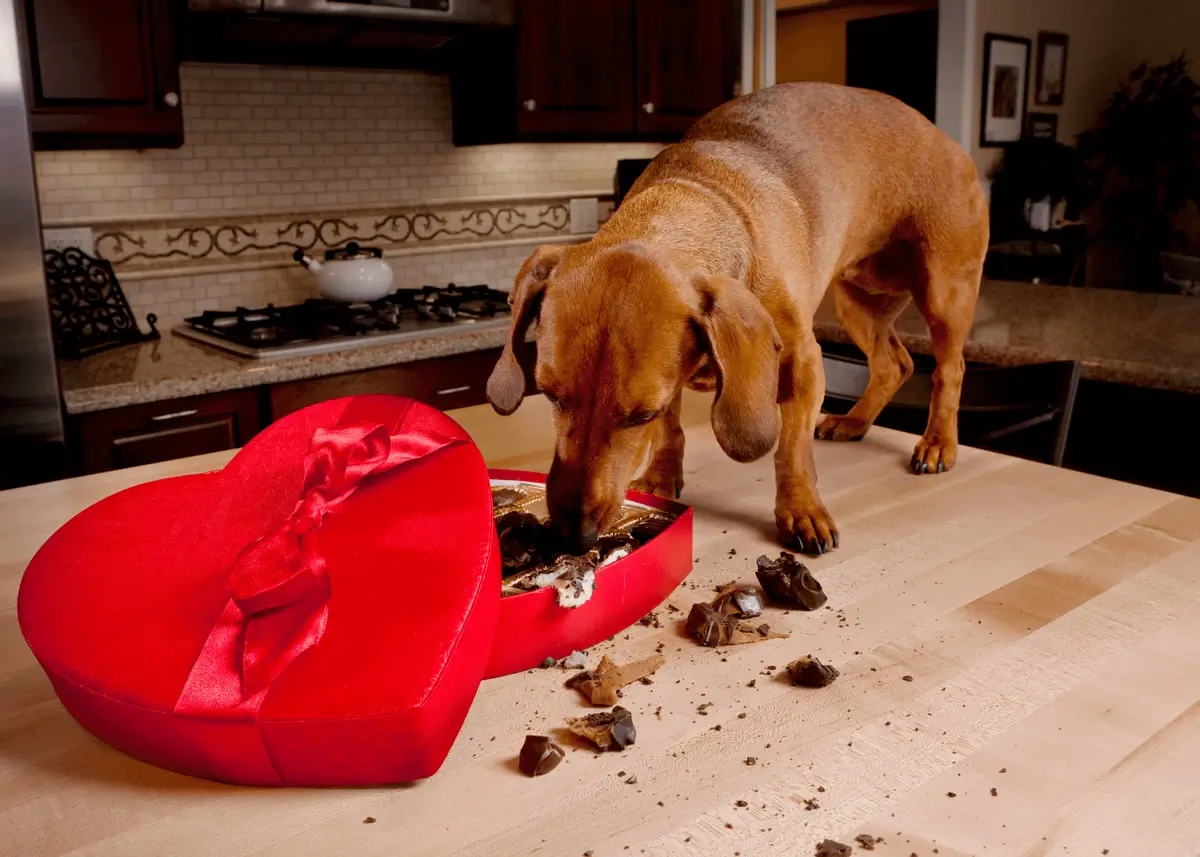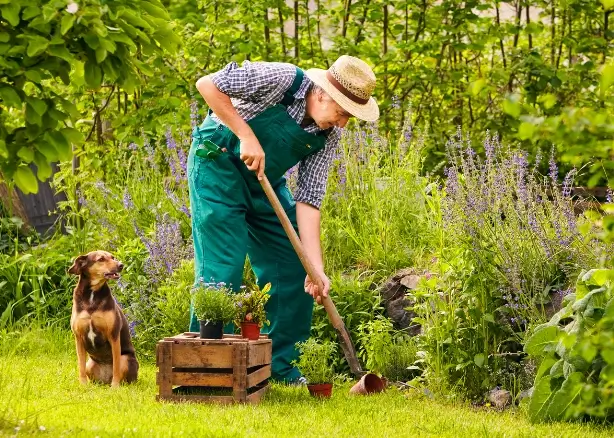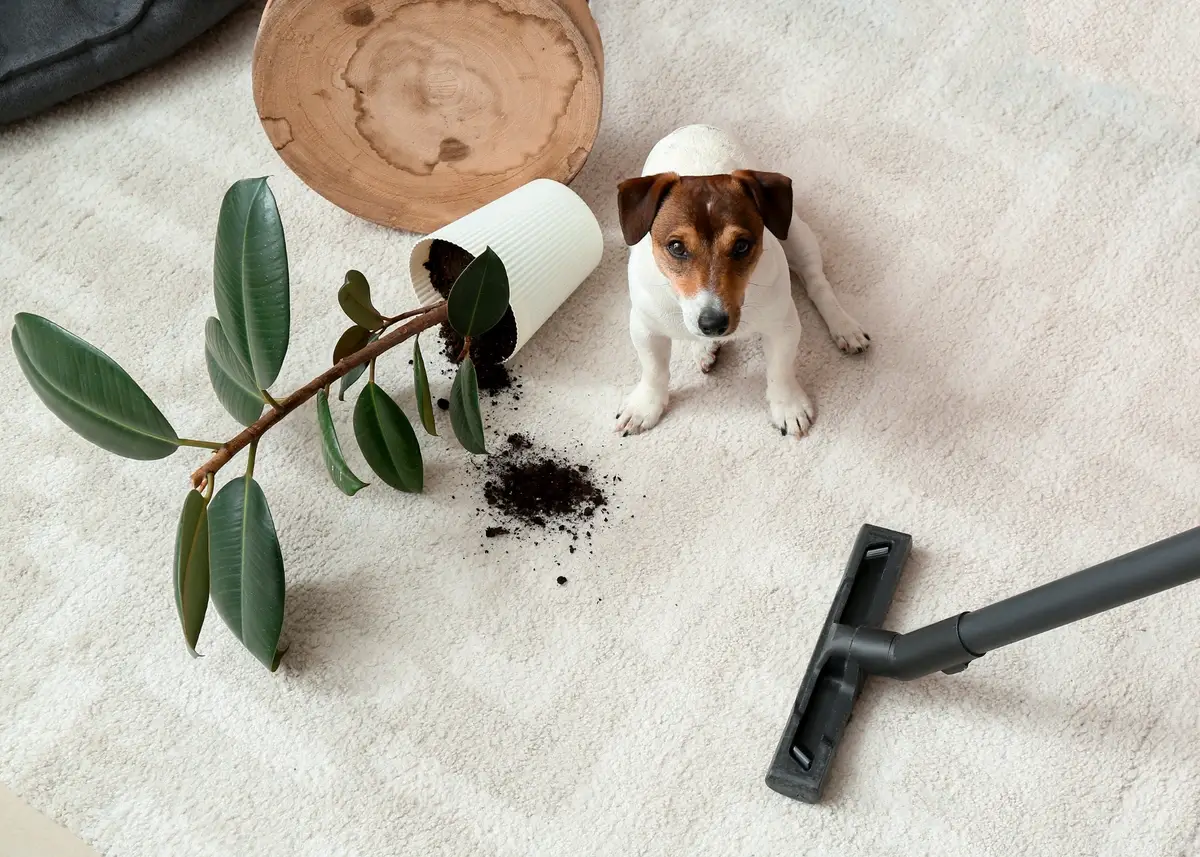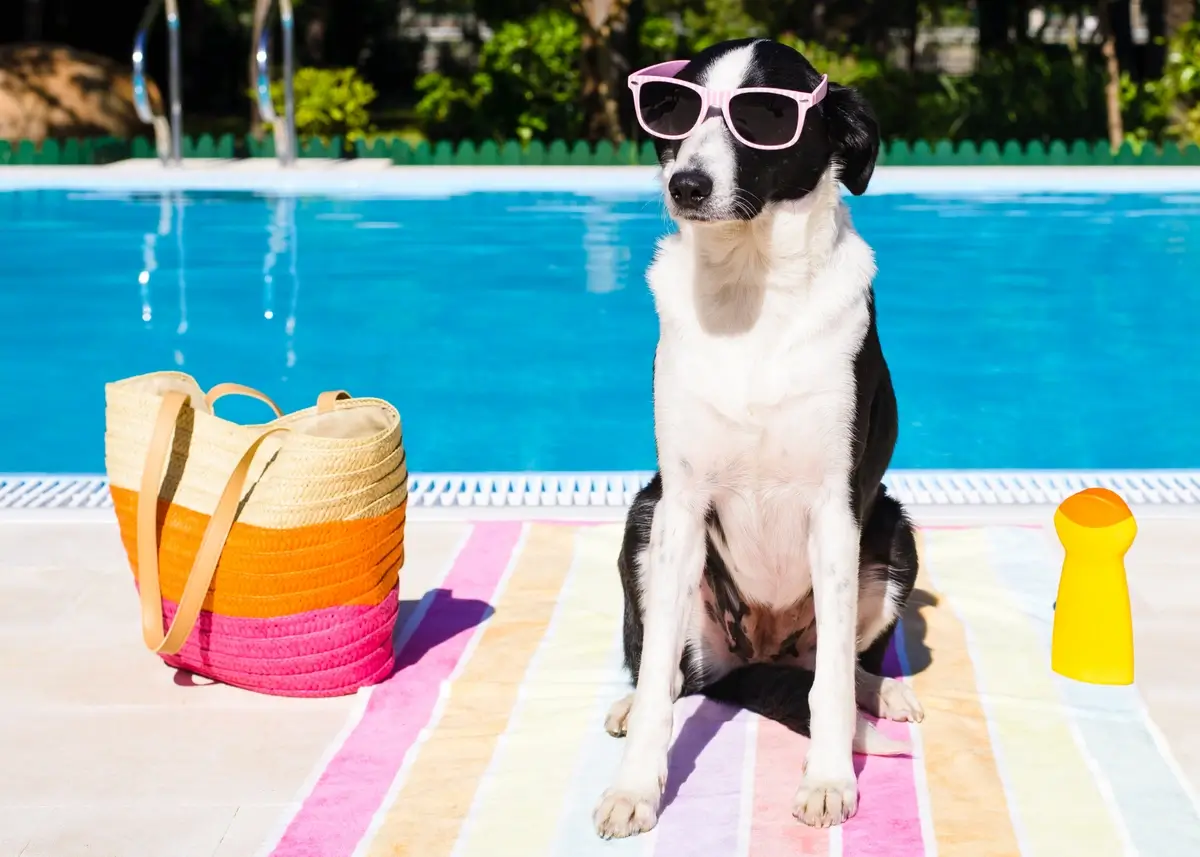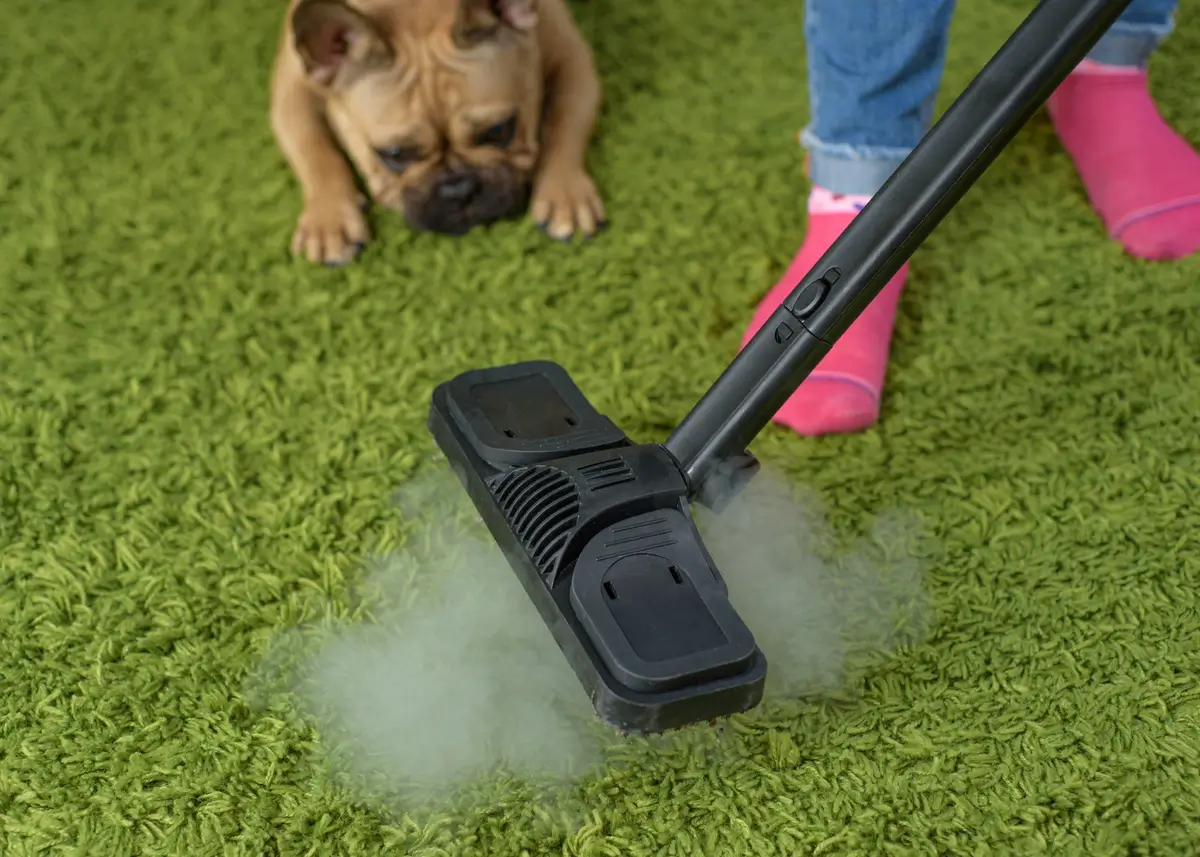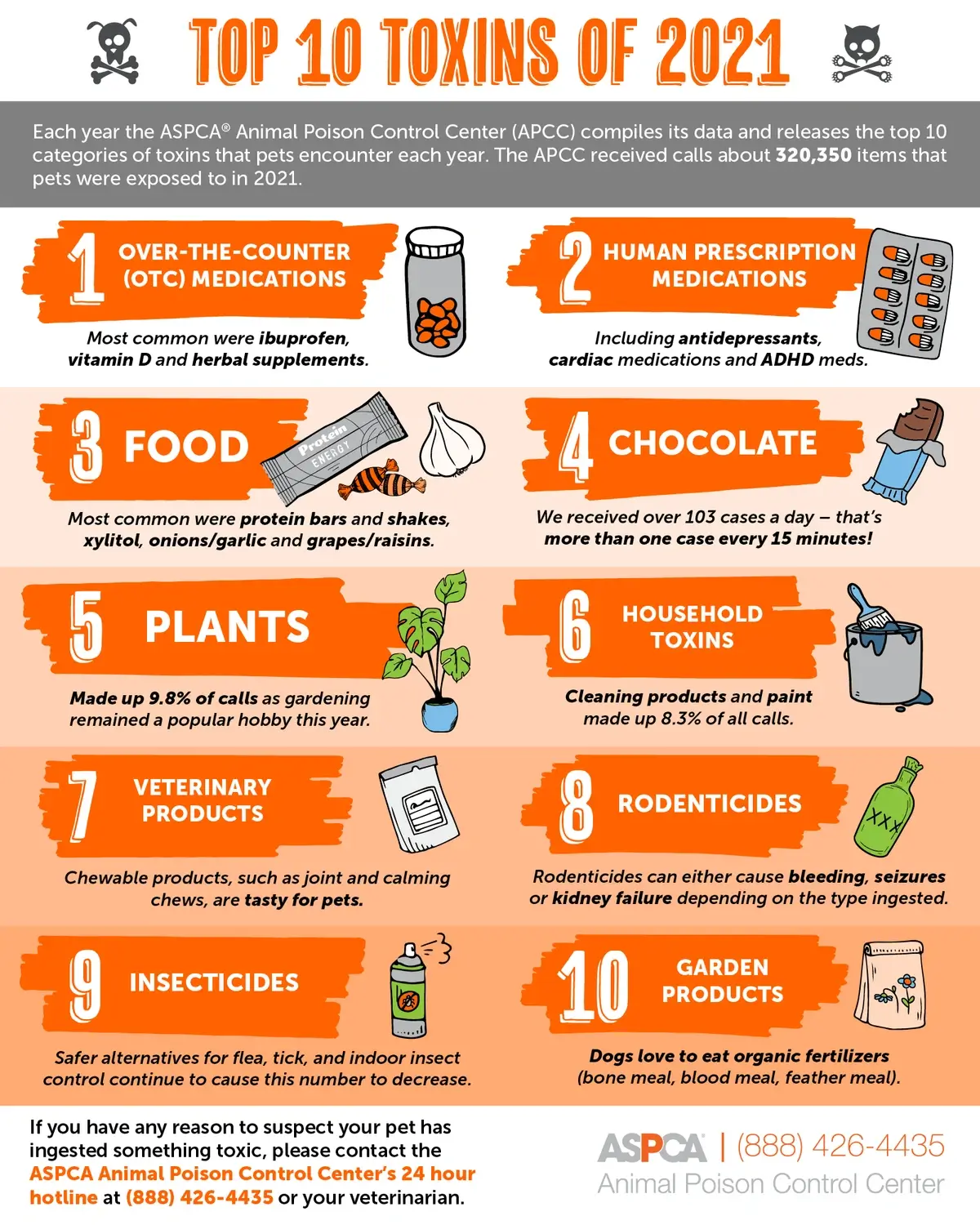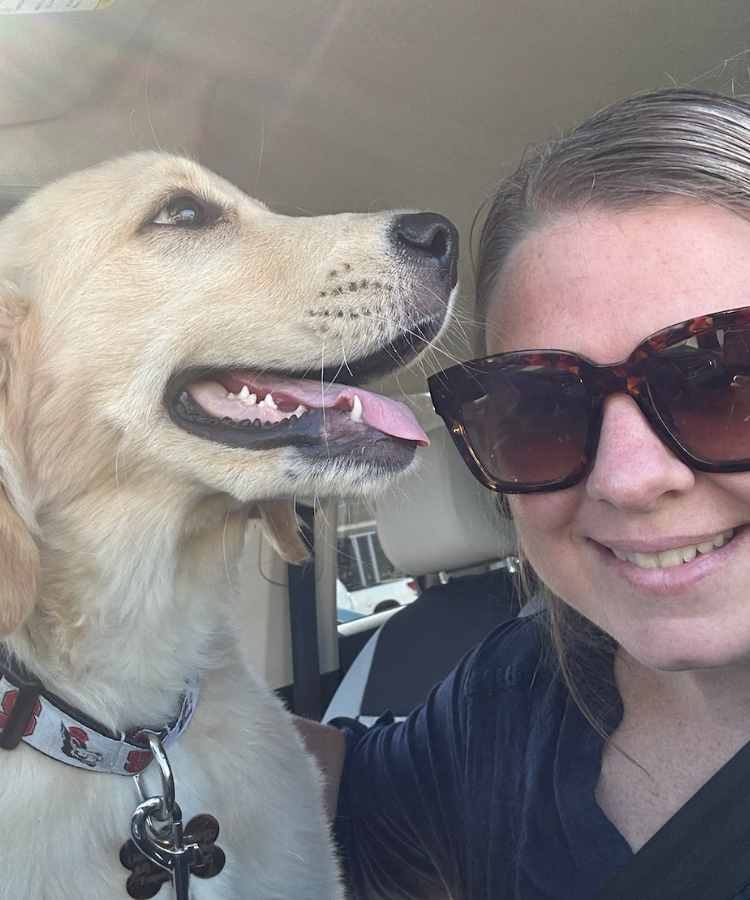Puppies are like toddlers – you can be supervising them for hours straight, but the second you turn your back, they’ve gotten into something you had no idea was even accessible.
In addition, puppies explore their world orally, so they’re going to put what they find right in their mouths. They haven’t learned yet what to avoid and haven’t been working on the “leave it” or “drop it” command for very long.
When you’re puppy-proofing your house, you may know the basics of what dangerous substances to put away, like toxic household cleaners or antifreeze. However, the number of substances that are toxic to puppies can both surprise and overwhelm you!
March is Pet Poison Prevention Month, so you can celebrate by inviting some friends over and playing a game called “Puppy Toxin Scavenger Hunt.” Using our blog as a guide, you and your party guests can walk through your environment and check your house, yard, garage, attic, closets, and other storage areas for the toxins we’ll mention. The winner is the person who identifies and collects the most items to store away from your puppy!
In all seriousness (even though we think you should totally have the scavenger hunt), we know you will do whatever you can in order to raise a happy, healthy puppy. We want to provide a compilation of all sorts of toxins for puppies so you can make sure you have the safest environment for your four-legged buddy.
Because knowledge is power, learn which substances are poisonous and toxic to dogs and how to prevent dog poisoning to keep puppy safety a priority.
What Should I Do If My Dog Ingests Poison or Toxins?
If you think your pet may have ingested a potentially poisonous substance, never delay immediate action, as every second counts with suspected poisoning.
Always call the vet first! Your vet will recommend to you what to do, whether your choices are to treat at home, bring in for a visit or to an emergency vet, or call an animal poison control hotline. Your vet will know which one they prefer you call so you don’t have to do a Google search in a panic.
Speaking of Google, never rely on “Dr. Google” to tell you what is the best course of action for your puppy that has swallowed a potentially lethal substance! Leave it up to the licensed professionals! Don’t try to induce vomiting yourself because sometimes the poisonous substance can do more damage coming out than it did going in.
If you can’t reach your vet, call an animal poison hotline to consult what to do and keep trying your vet or emergency vet if needed.
What Substances are Toxic or Poisonous to Puppies?
Ahna Brutlag, Director of Veterinary Services and Senior Veterinary Toxicologist for the Pet Poison Helpline, aptly said, “If people are using something, pets are going to get into it” when discussing the recent spike in pet poisonings.
As a dog owner, it's important to be aware of the potential hazards in your environment, including poisons and toxins. Dogs are naturally curious creatures and may come into contact with substances that are harmful to their health. Unfortunately, we are surrounded everywhere by substances toxic to puppies. You probably have some of these items right now in your house, and they may be accessible to your puppy without you realizing it.
Poisons and toxins can range from household cleaners and human medications to plants, chemicals, and even certain foods. When ingested or absorbed through the skin, these substances can cause a variety of symptoms in dogs, including vomiting, diarrhea, seizures, and even death.
While our list is not an inclusive list of every toxin out there, we want to provide a thorough guide for avoiding a pet poisoning incident. For an extremely comprehensive list of substances that are poisonous and toxic to dogs, the Poison Pet Hotline lists a dizzying array in alphabetical order.
Prescription & OTC Medications Are the #1 Cause of Pet Poisoning
According to researchers at Georgetown University’s Health Policy Institute, more than 131 million people use prescription drugs every day including painkillers, antidepressants, and heart medications – roughly 66 percent of all adults in the United States. It comes as no surprise then that human medications are the leading cause of pet poisoning in the last few years. Whether you take prescription medication or occasionally use over-the-counter medications, you need to do what you can to keep them away from your puppy!
While you may be thinking of over-the-counter and prescription drugs, don’t forget about vitamins and supplements. For example, Vitamin D, iron, calcium, and herbal supplements can wreak havoc on a puppy. Do not assume a dog will just pee out the unused vitamins – that’s a harmful, incorrect myth!
Medication prescribed by a veterinarian can also be poisonous to dogs when taken without following instructions on the label. And even if you do follow instructions, your puppy may have a severe unexpected adverse reaction. In addition to storing them away, it’s a great idea to keep a chart with the times and dosage of when you give your puppy any medication so you don’t accidentally administer a double dose.
Never store pills and medications outside their original packaging. You won’t have time to conduct an internet search for which pill your puppy ingested when time is of the essence!
It only takes a moment to knock over a bottle, causing pills to go flying everywhere. It’s a great idea to crate your puppy or take your meds in a separate room from your puppy, and always inspect your area for wayward or spilled pills. Make sure lids are on tightly and medicines are stored high up away from your curious puppy who may mistake your medication for a treat.
Foods That Are Poisonous or Toxic to Dogs
We humans sure do love to eat! While we want our pup to experience our love of the finer things in life, feeding your pup table scraps is not the way to go about it. In fact, rather than exposing your pup to delicious treats humans love, you could actually be poisoning your puppy with some of your favorite foods!
When you’re in the kitchen, throwing a party, or having a snack, you must be aware of the potential toxicity to dogs of the food you’re cooking. Likewise, if you choose to keep foods toxic to dogs in your home, make sure that everyone in your household – especially children – knows how potentially threatening these foods and drinks can be to your puppy’s well-being. It only takes a preschooler to throw an afternoon snack of grapes at the puppy, or your roommate to leave out some Easter or Halloween candy on the coffee table in reach of your puppy to accidentally cause a tragic emergency.
Learn more about toxic foods for puppies, and be sure to search your pantry, cabinets, fridge, and freezer for these popular human foods that can devastate the health of your puppy:
- Chocolate – This delicious substance to humans contains theobromine, a chemical that can cause vomiting, diarrhea, and even death in dogs. Chocolate is the leading food-related poison to dogs, so beware, Chocolate Lovers!
- Xylitol – This artificial sweetener found in products ranging from gum to peanut butter to alcohol mixers can cause vomiting, inability to walk, seizures, and possible death.
- Grapes, raisins, & currants – Can cause acute kidney failure, vomiting, diarrhea, and lethargy
- Onions, garlic, leeks & chives – Oxidizing agents in these plants can cause red blood cells to burst, gastrointestinal upset, kidney damage, and more.
- Alcohol – Just like in humans, alcohol slows down the Central Nervous System; dogs can’t metabolize alcohol in their bodies.
- Caffeine – Don’t let your pup skip the puppuccino and go for an actual cappuccino because caffeine can cause hyperactivity, abnormal heart rhythms, panting, vomiting, diarrhea, and more.
- Avocado – A chemical called persin is found in some types of avocadoes, their leaves, and pits. Never let a pup play with an avocado pit in case they chew it and release persin or choke on it. While the avocado fruit itself does not necessarily contain toxins, better safe than sorry.
- Macadamia nuts – Dogs get the unfortunate award of being a species other than humans that are allergic to macadamia nuts from a substance found in the oily nut; toxicity can cause pancreatitis, abdominal pain, fever, weakness, vomiting, and more.
- Apple & apricot seeds – Did you know that the seeds of apples and apricots contain cyanide? If there is any good news out of this list, your dog would have to eat a huge amount of seeds. However, seeds can still be toxic to your puppy, so they definitely made our list.
- Fatty, sugary, salty, and rich foods – Many casseroles, gravies, holiday foods, decadent desserts, snacks, and delicious dishes are simply too fatty, sugary, and salty for dogs to handle. They can cause severe dehydration, destroy a dog’s gastrointestinal system, and affect blood sugar levels, leading to other dangerous health conditions. These dishes are also highly likely to contain an ingredient off our no-no list.
- Dairy products – Dogs do not produce enough of the enzyme called lactase responsible for breaking down dairy in the body.
- Table scrap skin & bones – But dogs love bones, you say! Not all bones are made the same. Some poultry bones can splinter and cause major internal problems with your dog.
- Bread dough – The yeast found in raw bread dough can keep expanding, trapping harmful gases in your dog that can cause terrible damage.
What Plants are Toxic to Puppies?
If you’re wondering what plants are toxic to dogs, you’ll find a huge variety of plants, flowers, berries, and mushrooms on the list, some of which may surprise you. Some of these plants are found inside your home, while your pup can encounter others outside, even at a dog park from mushrooms sprouting from mulch or woodsy areas to toxic berries poking through a chainlink fence.
There are several dangerous plants that can be harmful to dogs if ingested. We may display some year-round, while others may be specific to certain seasons or holidays, like peace lilies at Easter, which can cause kidney failure, or poinsettias at Christmas, which can cause vomiting and drooling. We’ve listed plants we eat as foods that puppies should stay away from in our foods toxic to puppies section.
Other toxic plants include the sago palm, which can lead to liver failure. Additionally, many common household plants such as philodendrons and azaleas can cause mouth and throat irritation, vomiting, and diarrhea in dogs.
It is important to research the plants in your surrounding area and keep your dog away from any potentially toxic vegetation, both inside and outside your home.
Which Household Items Can Poison My Puppy?
Many household cleaning products, such as bleach, toilet bowl cleaners, and oven cleaners, contain toxic chemicals that can be harmful to dogs if ingested or even inhaled. Even when diluted, such as when mopping the floor, these chemicals can be detrimental to your puppy’s health.
Pesticides
Pesticides are poisons and toxins to dogs because they are specifically designed to kill insects, rodents, snails, and other pests. These chemical compounds can be found in various forms such as sprays, powders, mothballs, and baits. Dogs can be exposed to pesticides through ingestion, inhalation, or skin contact; even small amounts can be dangerous.
Pesticides can cause a range of health problems in dogs, including nausea, vomiting, diarrhea, seizures, and even death. It is essential to keep pesticides out of reach of dogs and to use them only as directed.
Dangers can be lurking everywhere
You may not have even thought to consider other household items that typically don’t appear in lists, such as printer ink or toner, markers, certain types of glue, wite-out, hydrogen peroxide, or even stinky shoe spray kept on a closet floor.
During your scavenger hunt (yes, we’re assuming you’re playing along), it helps to crouch down on all fours to thoroughly inspect what your puppy sees at eye level. We recommend this method when preparing your home for a new puppy because it helps you gain a different perspective on all the ways your puppy can get into something! You may find some items not suitable to have out around puppies that you can securely store somewhere else.
Check Your Garage for Puppy Toxins
Automotive poisons and toxins pose a significant threat to dogs. Antifreeze, for example, contains ethylene glycol, a sweet-tasting but deadly substance that can cause kidney failure and death in dogs. Brake fluid, transmission fluid, lighter fluid, and motor oil contain various chemicals, such as lead, benzene, and arsenic, which can lead to serious health issues, including cancer, organ damage, and neurological problems. Inhaling exhaust fumes can also be harmful to dogs, causing respiratory issues and even death.
Hobbies like woodworking and painting often require lacquers and other fluids that may not be safe for puppies to ingest, so always supervise your puppy carefully when they are in your hobby space.
Not So Fun in the Sun: Summer Poison Prevention
Dogs love romping around in the sunshine! Summertime is a wonderful season to soak up the sun's warm rays and strengthen your bond with your puppy. However, dangers can lurk in the shadows, even on a bright, sunny day.
Poisons in the Water
Summertime means more time spent outdoors, especially near water. While dogs love to swim and play in pools, creeks, lakes, or at the beach, it is important to be aware of the various poisons and toxins that can be harmful or even deadly to them.
Throw a safe pool party
One common toxin found in pool water is chlorine. While a properly maintained pool should not pose a risk, some dogs may have adverse reactions to chlorine, such as skin irritation, eye irritation, or upset stomach. It is important to keep an eye on your dog's behavior and remove them from the pool if they show signs of discomfort.
In addition, curious puppies may chew on the floating mats, pool noodles, or that unicorn cowboy blow-up float you finally scored on sale, so be sure to monitor your puppy so he or she does not ingest harmful chemicals or end up with a horrible case of gastrointestinal obstruction.
Just beachy
Beaches can also pose a threat to dogs, especially if there are blue-green algae blooms present. These blooms can release toxins that are harmful to dogs if ingested, leading to symptoms such as vomiting, diarrhea, seizures, and even death. It is important to check for warnings of harmful algae blooms before bringing your dog to the beach.
Another potential danger at the beach is the ingestion of sand. This can lead to gastrointestinal issues, including constipation or obstruction. It is important to monitor your dog's behavior and discourage them from eating sand.
Lastly, all sorts of sea creatures wash up on the shore, some of which are absolutely stunning in how dangerous they could be. For example, jellyfish are notorious for delivering painful stings of venom using their barbed tentacles, even when the tentacles are detached!
Outdoor skin products are generally not safe for puppies
Sunscreen and bug spray are poisons and toxins to dogs because they contain chemicals that are harmful to canine health. The active ingredients in many sunscreens, such as zinc oxide and titanium dioxide, can cause gastrointestinal issues, lethargy, and anemia when ingested by dogs.
Similarly, the chemicals found in bug sprays, such as DEET and permethrin, can cause vomiting, seizures, and even death in dogs. It's crucial to keep these products out of reach of pets and seek veterinary attention immediately if you suspect your dog has ingested them.
Up the creek without a paddle
Bodies of water like creeks, streams, and ponds can contain toxic runoff from pesticides, fertilizers, polluted stormwater, and farm waste. Make sure you supervise your puppy when romping around out in water sources, and avoid areas where there have been problems in the past with contaminated water.
Are There Scents & Essential Oils Poisonous to Dogs?
A bowl of potpourri, melted wax in scent warmers, and fragrant room and body sprays can all make us feel fresh and keeps stinky smells at bay. However, many of these fragrances and essential oils are extremely harmful to dogs. While not a comprehensive list, think twice before using these scents in your home decor or body care routine:
- Pine
- Anise
- Clove
- Garlic
- Thyme
- Yarrow
- Juniper
- Cinnamon
- Pennyroyal
- Peppermint
- Sweet birch
- Ylang ylang
- Wintergreen
- Citrus (d-limonene)
- Tea tree (melaleuca)
How We Can Utilize Information on Dog Poisoning For Change
The collection and analysis of the poisons and toxins ingested by dogs can provide valuable insights into the frequency and severity of poisoning incidents. By identifying the types of toxins or substances involved, steps can be taken to prevent further incidents and protect the health and well-being of dogs.
Furthermore, statistics on dog poisoning can inform public policy and regulatory measures related to the use and handling of toxic substances. For example, data on the incidence of dogs being poisoned by certain pesticides may lead to restrictions on their use or more stringent safety measures.
Here are the top 10 pet toxins the ASPCA’s Animal Poison Control Center (APCC) collected from assisting over 400,000 animals from concerned owners in 2021.
ASPCA's Animal Poison Control Center's list of the 10 top toxins most commonly reported in 2021
Pawrents and lawmakers can pay attention to this list in order to identify problem substances and develop strategies to prevent and respond to dog poisoning incidents.
Even if you don’t write and pass a new law on pet safety, you can always start with puppy-proofing your home and removing or storing all harmful products. You may also be inspired to change your cooking ingredients, your eating habits, or switch to non-toxic cleaning supplies, all intended to help prevent accidental poisoning in your puppy.
Keep a Pawrade Puppy Safe & Healthy
Now you have the knowledge to keep your puppy safe from toxins and poisons, you can enjoy a long, secure, fulfilling life with your Pawrade puppy.
At Pawrade, we pre-screen trustworthy breeders as partners to raise and provide the very best, healthiest puppies to potential puppy owners. Browse our puppies for sale and reserve the one that catches your eye!
